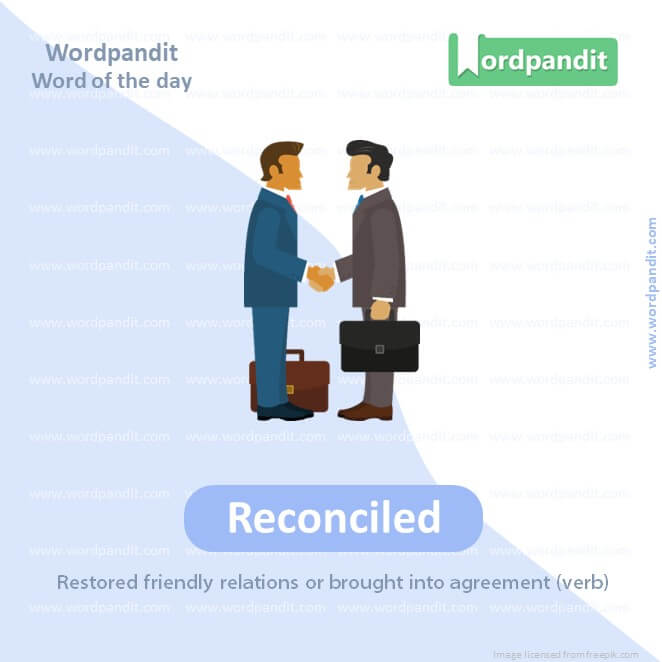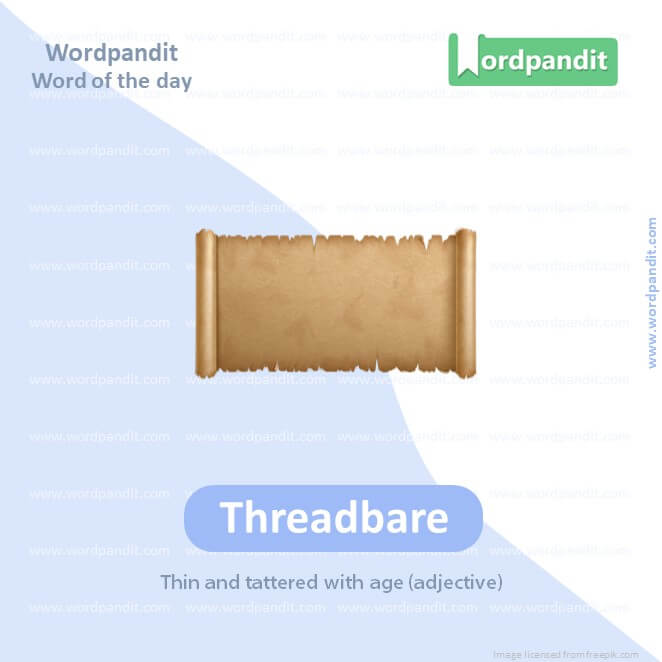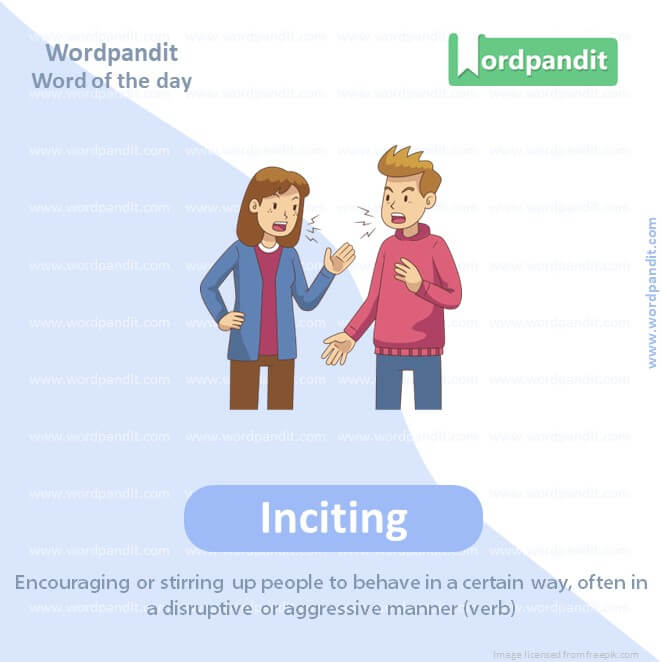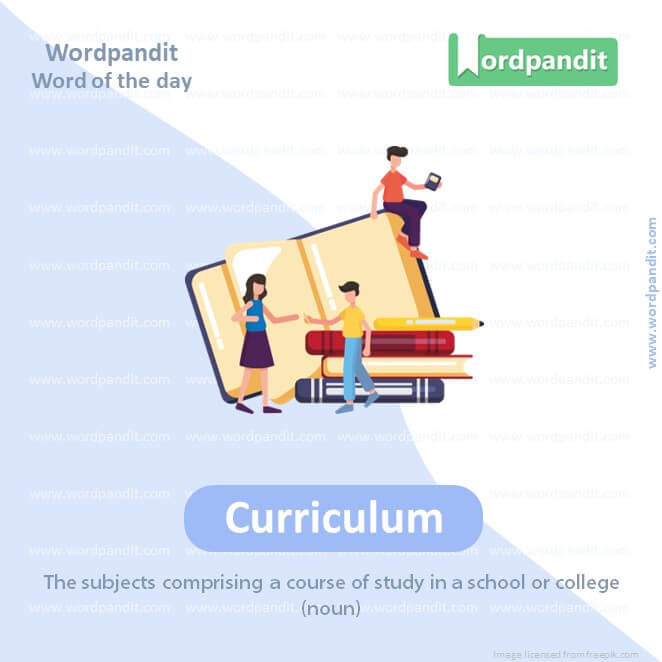Daily Vocabulary Words: List of Daily Used Words in Leading International Newspapers
Hi there. Welcome to this special section @ Wordpandit.
Our endeavour here is very simple: to highlight important daily vocabulary words, which you would come across in leading newspapers in the country. We have included the following newspapers in our selection:
• The New York Times
• The Washington Post
• Scientific American
• BBC
• The Guardian
• Psychology Today
• Wall Street Journal
• The Economist
We are putting in extensive work for developing your vocabulary. All you have got to do is be regular with this section and check out this post on a daily basis. This is your repository of words that are commonly used and essentially, we are posting a list of daily used words. Hence, this has significant practical application as it teaches you words that are used commonly in leading publications mentioned above.
Visit the website daily to learn words from leading international newspapers.

WORD-1: Reconciled
CONTEXT: the welfarist and the liberal – can be reconciled more creatively in the future than they have been in the past.
SOURCE: Guardian
EXPLANATORY PARAGRAPH: Imagine two friends who had an argument but then talked and made up, feeling happy and close again. That’s like being “reconciled.” It means resolving a disagreement or conflict and becoming friends again, like fixing a broken toy and making it work like new.
MEANING: Restored friendly relations or brought into agreement (adjective/verb).
PRONUNCIATION: REK-uhn-sahyld
SYNONYMS: reunited, harmonized, settled, resolved, restored, patched up
USAGE EXAMPLES:
1. After a long argument, the siblings finally reconciled and apologized to each other.
2. The couple reconciled their differences and decided to give their relationship another chance.
3. The company and the labor union reconciled their differences through negotiation.
4. She felt reconciled with herself after forgiving her past mistakes.

WORD-2: Threadbare
CONTEXT: would be better employed rethinking their doctrines than trying to win the party to what are, by now, rather threadbare ideas”.
SOURCE: Guardian
EXPLANATORY PARAGRAPH: Imagine a favorite teddy bear you’ve hugged so much that its fur is coming off in patches. That’s like something “threadbare.” It means something is very old and worn out, like clothes with holes or a book with pages falling out, because it’s been used a lot.
MEANING: Thin and tattered with age (adjective).
PRONUNCIATION: THRED-bair
SYNONYMS: worn out, frayed, tattered, dilapidated, ragged, worn thin
USAGE EXAMPLES:
1. He wore a threadbare coat that had been passed down through generations.
2. The family’s threadbare furniture was a testament to their years of use.
3. She patched up the threadbare elbows of her favorite sweater.
4. The threadbare carpet in the hallway needed to be replaced.

WORD-3: Inciting
CONTEXT: the inciting incident then sets the parameters of all the discussion to follow
SOURCE: Guardian
EXPLANATORY PARAGRAPH: Imagine someone whispering a secret to you that makes you so excited you want to tell everyone. That’s like “inciting.” It means encouraging or stirring up strong emotions or actions in someone, like riling up a crowd to protest or motivating someone to achieve a goal.
MEANING: Encouraging or stirring up people to behave in a certain way, often in a disruptive or aggressive manner (verb/adjective).
PRONUNCIATION: in-SAHY-ting
SYNONYMS: provoking, encouraging, stimulating, prompting, urging, inflaming
USAGE EXAMPLES:
1. The politician’s speech was accused of inciting violence among the supporters.
2. His provocative remarks incited anger among the audience.
3. The music incited the crowd to dance and sing along.
4. The protest was incited by the government’s decision to raise taxes.

WORD-4: Curriculum
CONTEXT: I doubt the phrases “defund the police” or “decolonise the curriculum” would have generated the same support.
SOURCE: Guardian
EXPLANATORY PARAGRAPH: Imagine you’re going on a big adventure and need to pack everything you’ll need. That’s like a “curriculum.” It’s a plan that lists all the things you’ll learn in school, like math, science, and history, to make sure you’re ready for the adventure of life.
MEANING: The subjects comprising a course of study in a school or college (noun).
PRONUNCIATION: kuh-RIK-yuh-luhm
SYNONYMS: syllabus, program of study, course outline, educational plan, study schedule
USAGE EXAMPLES:
1. The school’s curriculum includes a wide range of subjects, from literature to physical education.
2. The new curriculum emphasizes hands-on learning and critical thinking skills.
3. She designed a curriculum for homeschooling her children.
4. The university is revising its curriculum to better prepare students for the job market.

WORD-5: Decolonise
CONTEXT: I doubt the phrases “defund the police” or “decolonise the curriculum” would have generated the same support.
SOURCE: Guardian
EXPLANATORY PARAGRAPH: Imagine a game where one player has all the best pieces, making it impossible for others to win. That’s like “decolonizing.” It means undoing the effects of colonization, where one group of people takes control of another’s land or resources, often causing harm or inequality.
MEANING: To free a country from being controlled by another country, allowing it to govern itself (verb).
PRONUNCIATION: dee-KOL-uh-nahyz
SYNONYMS: liberate, emancipate, free, unshackle, dismantle, disentangle
USAGE EXAMPLES:
1. The country’s leaders vowed to decolonize their policies and give more power to indigenous communities.
2. Efforts to decolonize education include incorporating more diverse perspectives into the curriculum.
3. The movement seeks to decolonize minds and challenge Eurocentric views of history.
4. Decolonizing involves recognizing and rectifying the injustices of the past.
WORD-6: Complacency
CONTEXT: The price of this complacency is already being paid in Ukrainian blood.
SOURCE: Guardian
EXPLANATORY PARAGRAPH: Imagine someone who’s always winning at a game and starts to think they’ll never lose. That’s like “complacency.” It means being too satisfied or comfortable with yourself, like thinking you don’t need to try hard anymore because you’re already so good.
MEANING: A feeling of smug or uncritical satisfaction with oneself or one’s achievements (noun).
PRONUNCIATION: kuhm-pley-suhn-see
SYNONYMS: self-satisfaction, contentment, smugness, self-congratulation, self-assurance, self-approval
USAGE EXAMPLES:
1. The team’s complacency led to their defeat in the championship game.
2. His complacency about his grades resulted in a decline in his academic performance.
3. The company’s complacency about market changes caused it to lose its competitive edge.
4. Complacency can be dangerous because it can prevent personal growth and improvement.
WORD-7: Disparity
CONTEXT: Artillery isn’t everything, but the disparity speaks to Ukraine’s relative shortage of materiel, evident in other areas such as the number of drones it can field.
SOURCE: Guardian
EXPLANATORY PARAGRAPH: Imagine two piles of candy – one with lots and one with just a few. That’s like “disparity.” It means a big difference or gap between two things, like the difference in the number of toys some kids have or the difference in how much money people earn.
MEANING: A great difference or inequality; a wide gap between two things (noun).
PRONUNCIATION: dih-SPAR-i-tee
SYNONYMS: inequality, discrepancy, imbalance, divergence, variance, contrast
USAGE EXAMPLES:
1. There is a great disparity in income between the rich and the poor in this country.
2. The disparity in access to healthcare between urban and rural areas is a major concern.
3. The report highlighted the disparity in educational opportunities for children from different socio-economic backgrounds.
4. The disparity in resources between the two teams was evident in the outcome of the game.
WORD-8: Flippant
CONTEXT: Despite the flippant observation – often made by European officials – that Russia’s economy is the same size as that of Italy, the Kremlin is producing more shells than all of Nato.
SOURCE: Guardian
EXPLANATORY PARAGRAPH: Imagine someone who laughs and jokes about something serious, like a fire drill or a broken toy. That’s like “flippant.” It means not taking something seriously when you should, like making jokes in a serious conversation or treating important things like they’re not important at all.
MEANING: Not showing a serious or respectful attitude; being disrespectful or light-hearted in a situation that demands seriousness (adjective).
PRONUNCIATION: FLIP-uhnt
SYNONYMS: frivolous, glib, facetious, irreverent, shallow, superficial
USAGE EXAMPLES:
1. Her flippant remarks during the meeting offended some of her colleagues.
2. The politician’s flippant attitude towards environmental issues angered many voters.
3. His flippant response to the criticism showed a lack of understanding of the seriousness of the situation.
4. The teacher reprimanded the student for his flippant behavior in class.
WORD-9: Feasible
CONTEXT: Ensuring Russia’s defeat in Ukraine is feasible, but it requires some important steps.
SOURCE: Guardian
EXPLANATORY PARAGRAPH: Imagine you have a big project to do, like building a castle out of blocks. That’s like something “feasible.” It means something that’s possible to do or achieve, like finishing your homework on time or learning to ride a bike with training wheels.
MEANING: Capable of being done or accomplished; possible; likely to succeed (adjective).
PRONUNCIATION: FEE-zuh-buhl
SYNONYMS: achievable, attainable, doable, practicable, viable, realistic
USAGE EXAMPLES:
1. The plan to expand the business seemed feasible given the current market conditions.
2. It’s not feasible to finish the project by tomorrow; we need more time.
3. The idea of traveling to Mars is becoming more feasible with advancements in technology.
4. She considered various options before choosing the most feasible one.
WORD-10: Munitions
CONTEXT: Many of the munitions provided since the beginning of the war were purchased from the international market or drawn from stockpiles, and investment in European production has been slow.
SOURCE: Guardian
EXPLANATORY PARAGRAPH: Imagine someone building a fort out of blocks and hiding toy soldiers inside to protect it. That’s like “munitions.” It means weapons or ammunition used in war, like guns, bombs, or tanks, to defend or attack in battle.
MEANING: Military weapons, ammunition, and equipment used in warfare (noun).
PRONUNCIATION: myoo-NISH-uhnz
SYNONYMS: weaponry, arms, armaments, ordnance, artillery, firepower
USAGE EXAMPLES:
1. The army transported crates of munitions to the front lines.
2. The factory produced munitions for the war effort.
3. The soldiers loaded their rifles with munitions before heading into battle.
4. The country’s defense budget included funds for upgrading its munitions supply.
Vocabulary Pronunciation
The dance of language learning comprises two inseparable partners: vocabulary and pronunciation. The rhythm of this dance is best enjoyed when both partners are in sync. Essentially, mastering ‘vocabulary pronunciation’ is key to expressing and understanding a language effectively. However, what is the ideal approach to learn ‘vocabulary pronunciation’?
Firstly, the process of learning ‘vocabulary pronunciation’ isn’t a sprint. Rather, it’s a marathon where consistency is vital. A gradual and steady pace of learning new words and their pronunciation offers enough time to effectively practice and commit them to memory.
Secondly, to master ‘vocabulary pronunciation’, go beyond written text. Dwell in the world of audible language, such as documentaries, podcasts, music, or language-learning apps that provide pronunciation guides. These memorable auditory experiences aid in refining your ‘vocabulary pronunciation’ and offer a glimpse into the authentic sounds of the language.
Another beneficial strategy for learning ‘vocabulary pronunciation’ involves the use of phonetic transcriptions. They offer systematic approaches to understanding the sound system of a language, thereby improving pronunciation.
Most importantly, do not shy away from practicing your ‘vocabulary pronunciation’. Be it in a language exchange meeting, a conversation with a native speaker, or even a self-recording session, active verbalization massively boosts your pronunciation prowess.
Lastly, always remember to train your ears as much as you train your tongue. Listening carefully to native speakers helps you capture the subtleties of ‘vocabulary pronunciation’, contributing to better delivery when you speak.
In conclusion, mastering ‘vocabulary pronunciation’ is not an overnight journey. It’s a process of intentional practice, sustained listening, conscientious reflection and active usage. As you chart this course with diligence and patience, you will witness your ‘vocabulary pronunciation’ skills blossom, leading you to communicate with greater fluency and confidence.













